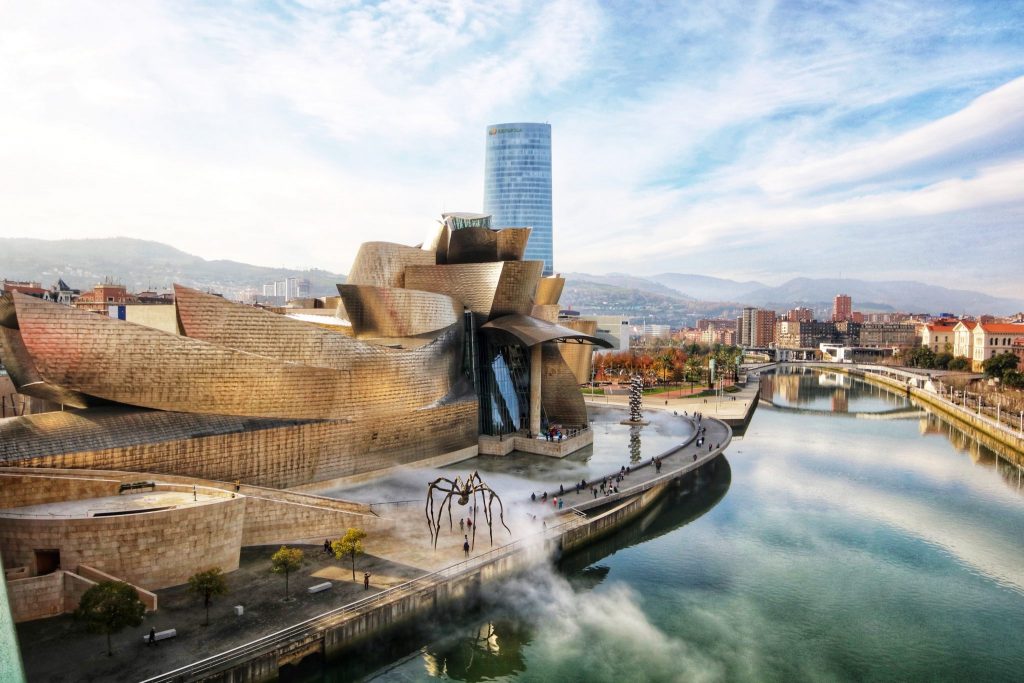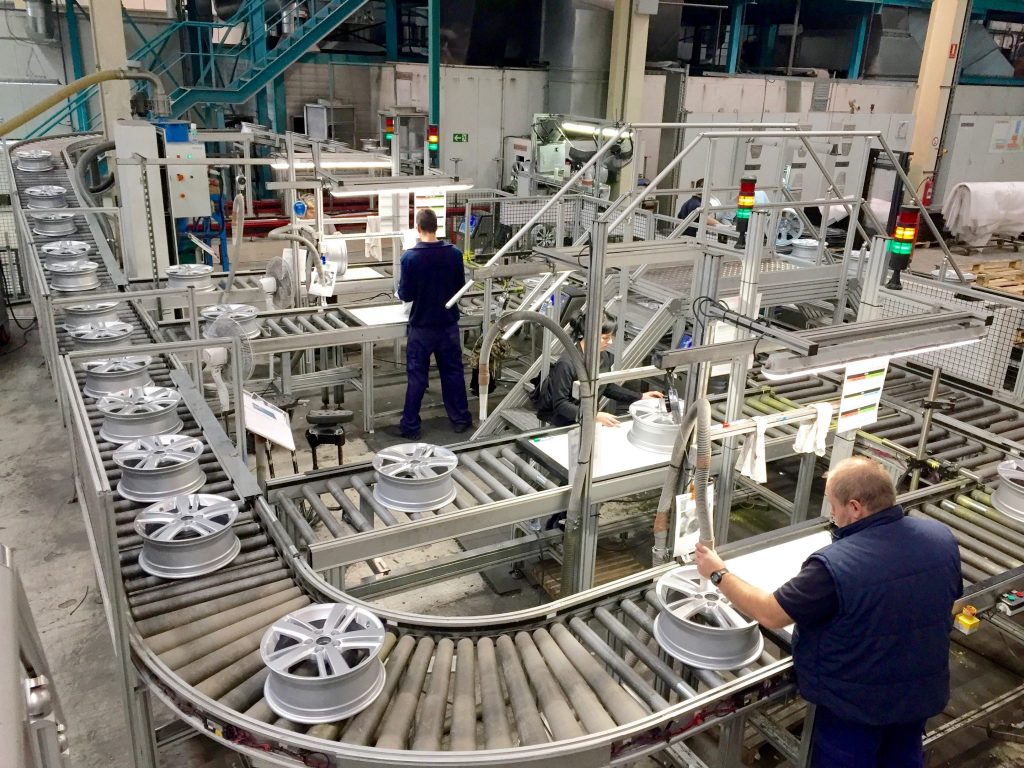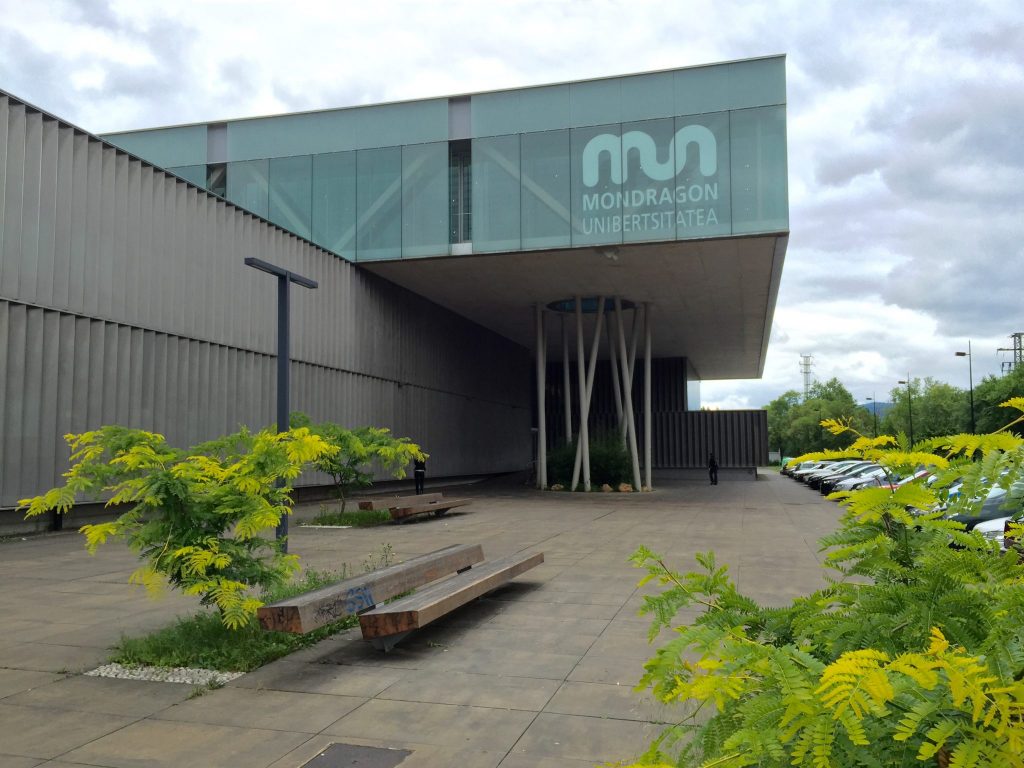Mondragón in the Spanish Basque Region is the largest cooperative in the world and one of the most successful companies in Spain. The workers of the Mondragón Cooperative own their company and make their own decisions. Today, Mondragón is not only a global player in a wide range of industries, but also a model for those who want to bring democracy and solidarity into our economic life.
When we think of cooperatives in general, housing cooperatives or, in rural areas, pasture cooperatives come to mind: small structures that play a subordinate role in economic life. It is a completely different story in the Spanish Basque Region, where the Mondragón cooperative is the most successful company and the largest employer in the region. But there is more: Mondragón is not only one of the largest companies in the whole of Spain. Branches in 31 different countries and over 80,000 employees make it the largest cooperative in the world.
The birth of the cooperative
Mondragón’s history starts after the Spanish Civil War. At the time, the small town was plagued by mass unemployment and poverty. The priest of Mondragón, José María Arizmendiarrieta, wanted to help his community out of economic hardship. Together with the inhabitants of the town he founded a vocational school. The graduates of this school founded the city’s first cooperatives. Shortly afterwards, these cooperative members founded a credit institution to support the work of the cooperatives – and to help finance new cooperatives.
In the following years, the Mondragón Cooperative grew steadily. Just seven years after its foundation more than twenty cooperatives were part of Mondragón. In addition, the cooperatives took over more and more industries: the first cooperative mainly produced household electronics. Soon, Mondragón was also active in mechanical engineering, finance, retail and construction. One of the cooperative’s prestigious projects is the roof construction of the famous Guggenheim Museum in Bilbao.

The principle of Mondragón
Mondragón’s recipe for success? The employees manage the company by themselves. Instead of being owned by any shareholders or billionaires, Mondragón employees own their company and make their own decisions. The profits of the company are not paid to any offshore accounts in tax swamps. They go to those who have made the profits: the workers.
This economic democracy takes place at all levels at Mondragón. Regular meetings are held in individual cooperatives, where decisions are made about future investments, use of profits and similar matters. In addition, each cooperative sends delegates to the General Assembly of the Mondragón network, where the major strategic issues of the network are decided. This has not only ensured that the cooperatives are managed in the interests of their employees, but also that all employees have a strong bond with Mondragón.
Solidarity-based management
In addition to co-determination at all levels, it is the lived solidarity that makes Mondragón so successful, reflected in the pay gap. While other companies often pay their managers astronomical salaries, the Basque cooperative is different. The president of Mondragón earns only 6 times as much as the lowest wage group of the cooperative. Furthermore, the lower wage groups earn far more than the regional average, while the management has to be satisfied with less than their colleagues in other companies. The workforce rewards this wage justice: For example, the absence rate is half as low as in ordinary companies and productivity is eight percent higher.

But solidarity is also practiced between the different sub-cooperatives of Mondragón. If one of the co-operatives gets into financial difficulties, it often receives subsidies from the co-operative association to stabilise itself. In addition, the employees of the cooperative can decide on temporary salary cuts in order to restructure the cooperative. If all these measures do not help and a cooperative goes bankrupt, its employees are not put out on the street. As far as possible, other cooperatives take over these employees into their own business.
Mondragón today
Mondragón today consists of almost 100 different sub-cooperatives and employs over 80,000 people on all 5 continents. The economic activities are not only supported by its own bank, but also by continuous research and improvements. The cooperative has 15 innovation centres, and since 1997 even its own university with almost 5,000 students.

Mondragón’s success shows that a company can be based on solidarity, democracy and high wages – and remain internationally successful. The leadership of the cooperative association is clear:
“Our ultimate goal is to increase the wealth of the population by creating and maintaining jobs.” – Mikel Lezamiz, Director of Cooperative Dissemination Mondragón
Mondragón as a model
The cooperative from the Basque Region is now a model for companies and governments around the globe. One example is Cleveland, USA. In the past, Cleveland was a flourishing industrial city. However, as a result of de-industrialization in large parts of the USA, many of the factories in Cleveland closed down.
But the people of Cleveland did not simply accept this situation. They took the success of the Mondragón cooperatives as a model and created an urban economic plan with cooperatives and local production at its centre. Today Cleveland is flourishing again, thanks to inspiration from the Basque Country. Cooperatives in Cleveland operate the largest solar energy plant in the USA, as well as the largest system of greenhouses.
Adoption of the Mondragón model has also begun in England. The northern English city of Preston has a similar history to Cleveland; it used to be a vibrant industrial city, but de-industrialization has hit the city hard. Just like Cleveland, a local economic plan based on cooperatives has turned the tide. Today, the so-called Preston model is an official part of the British Labour Party’s economic programme.
